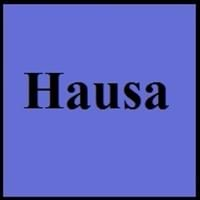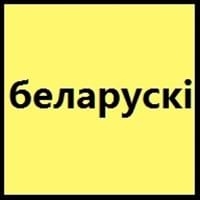Hausa and Belarusian
Countries
Nigeria
Belarus, Poland
National Language
Gambia, Nigeria
Belarus, Gambia
Second Language
Nigeria
Poland
Speaking Continents
Africa
Asia
Minority Language
Benin, Cameroon, Cote d'Ivoire, Ghana, Niger, Sudan, Togo
Czech Republic, Lithuania, Ukraine
Regulated By
Not Available
National Academy of Sciences of Belarus, National Languages Committee
Interesting Facts
- Hausa language is the most important and the best known of the Chadic branch.
- There are about one-fourth of Hausa words come from Arabic.
- Since 1918, Belarusian has been the official language of Belarus.
- Belarusian include many loanwords from Polish language.
Similar To
Not Available
Russian and Ukrainian
Derived From
Not Available
Not Available
Alphabets in
Hausa-Alphabets.jpg#200
Belarusian-Alphabets.jpg#200
Writing Direction
Not Available
Not Available
Language Levels
Not Available
Time Taken to Learn
Not Available
Thank You
gode ku
Dziakuj
How Are You?
yaya dai
Jak vy ?
Good Night
mai kyau dare
Dabranač
Good Evening
barka da yamma
Dobry viečar
Good Afternoon
barka da rana
dobry dzień
Good Morning
mai kyau safe
Dobraj ranicy
Please
Don Allah
Kali laska
Sorry
yi hakuri
Vybačajcie
Bye
sai anjima
da pabačennia
I Love You
Ina son ku
JA liubliu ciabie
Excuse Me
gafara dai
Vybačajcie
Dialect 1
Gaananci
North-Eastern Belarusian
Where They Speak
Ghana
North-East Belarus
Dialect 2
Kurhwayanci
South-Western Belarusian
Where They Speak
Niger
South-West Belarus
Dialect 3
Daragaram
Middle Belarusian
Where They Speak
Niger
Middle Belarus
Native Name
حَوْسَ (ḥawsa)
Беларуская мова (Bielaruskaja mova)
Alternative Names
Abakwariga, Habe, Haoussa, Hausawa, Kado, Mgbakpa
Belarusan, Belorussian, Bielorussian, Byelorussian, White Russian, White Ruthenian
French Name
haoussa
biélorusse
German Name
Haussa-Sprache
Weißrussisch
Pronunciation
Not Available
Not Available
Ethnicity
Hausa–Fulani people
Belarusians
Language Family
Afro-Asiatic Family
Indo-European Family
Branch
Not Available
Eastern
Early Forms
No early forms
Old East Slavic
Standard Forms
Hausa
Belarusian
Signed Forms
Not Available
Not Available
Scope
Individual
Individual
ISO 639 6
Not Available
Not Available
Glottocode
haus1257
bela1254
Linguasphere
19-HAA-b
53-AAA-eb < 53-AAA-e (varieties: 53-AAA-eba to 53-AAA-ebg)
Language Type
Living
Living
Language Linguistic Typology
Subject-Verb-Object
Not Available
Language Morphological Typology
Fusional
Not Available
All Hausa and Belarusian Dialects
Most languages have dialects where each dialect differ from other dialect with respect to grammar and vocabulary. Here you will get to know all Hausa and Belarusian dialects. Various dialects of Hausa and Belarusian language differ in their pronunciations and words. Dialects of Hausa are spoken in different Hausa Speaking Countries whereas Belarusian Dialects are spoken in different Belarusian speaking countries. Also the number of people speaking Hausa vs Belarusian Dialects varies from few thousands to many millions. Some of the Hausa dialects include: Gaananci, Kurhwayanci. Belarusian dialects include: North-Eastern Belarusian , South-Western Belarusian. Also learn about dialects in South American Languages and North American Languages.
Hausa and Belarusian Speaking population
Hausa and Belarusian speaking population is one of the factors based on which Hausa and Belarusian languages can be compared. The total count of Hausa and Belarusian Speaking population in percentage is also given. The percentage of people speaking Hausa language is 0.52 % whereas the percentage of people speaking Belarusian language is 0.11 %. When we compare the speaking population of any two languages we get to know which of two languages is more popular. Find more details about how many people speak Hausa and Belarusian on Hausa vs Belarusian where you will get native speakers, speaking population in percentage and native names.
Hausa and Belarusian Language Codes
Hausa and Belarusian language codes are used in those applications where using language names are tedious. Hausa and Belarusian Language Codes include all the international language codes, glottocodes and linguasphere.





